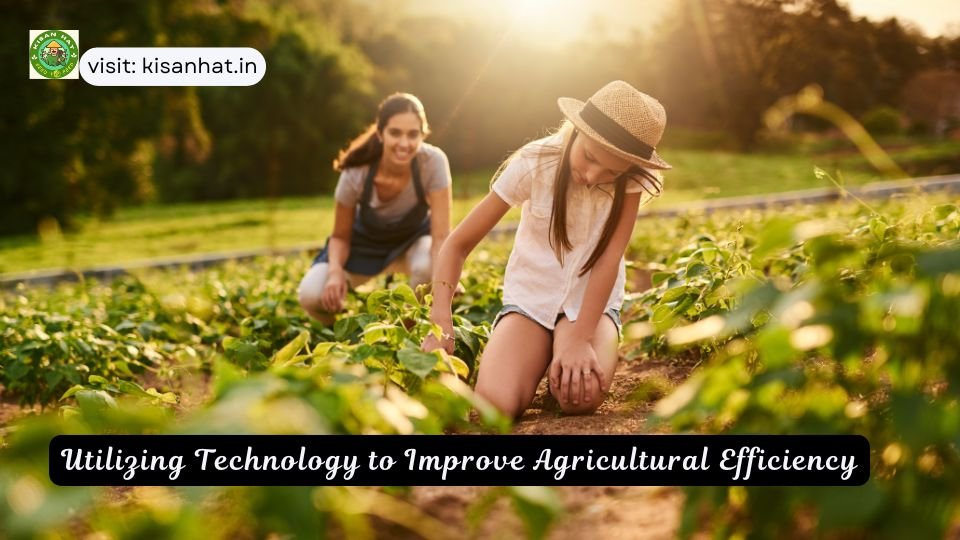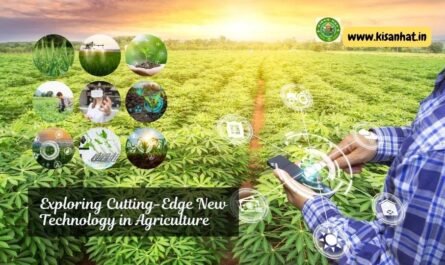What is sustainable agriculture, and why is it important?
In recent years, the urgency of addressing global environmental challenges has brought sustainable agriculture to the forefront of agricultural discourse.
But what exactly does sustainable agriculture entail, and why is it critical for our present and future? At its core, sustainable agriculture is an approach to food production that harmonizes the needs of the environment, economy, and society, aiming to create a resilient farming system that supports both current and future generations.
This practice emphasizes the responsible management of resources, minimizing ecological impact, enhancing biodiversity, and promoting social equity among farming communities.
As the world faces pressing issues such as climate change, food security, and resource depletion, understanding sustainable agriculture becomes essential.
This article will explore the principles of sustainable agriculture and highlight its significance in fostering a more viable, equitable, and environmentally friendly food system.
Understanding Sustainable Agriculture:
Sustainable agriculture refers to farming practices that prioritize the health of the environment, economy, and social equity while ensuring the productivity and viability of agricultural systems over the long term.
It encompasses a variety of techniques and approaches designed to minimize negative impacts on natural resources, preserve biodiversity, and promote soil health, water conservation, and energy efficiency.
To begin with, sustainable agriculture seeks to balance the need for food production with environmental protection.
This means employing practices such as crop rotation, cover cropping, agroforestry, and integrated pest management, which work to preserve the ecosystem and reduce reliance on synthetic fertilizers and pesticides.
By enhancing the resilience of farming systems, sustainable agriculture helps to maintain ecological balance and prevent the degradation of land and water resources.
The importance of sustainable agriculture cannot be overstated. As the global population continues to rise, the demand for food increases, placing immense pressure on agricultural systems.
Sustainable agriculture addresses this challenge by promoting methods that yield food more efficiently while reducing environmental harm.
It contributes to food security by ensuring that future generations will have access to the necessary resources for productive farming.
In addition to environmental benefits, sustainable agriculture is also economically advantageous. By reducing input costs through the use of organic practices, farmers can improve their profitability while still providing high-quality produce.
Furthermore, sustainability-oriented practices can increase resilience against climate change and market fluctuations, providing farmers with greater stability.
Social equity is another critical aspect of sustainable agriculture. It emphasizes fair labor practices, support for smallholder farmers, and equitable access to resources and markets.
By fostering community involvement and ensuring that farmers receive a fair return for their labor, sustainable agriculture helps build stronger, more resilient rural communities.
Moreover, sustainable agriculture plays a vital role in combating climate change. Agricultural practices can significantly affect greenhouse gas emissions, and by adopting sustainable methods, farmers can reduce their carbon footprint.
Practices such as no-till farming, agroecology, and organic farming improve carbon sequestration in soils, thus contributing positively to climate mitigation efforts.
Key Principles of Sustainable Agriculture:
Ecological balance:
Sustainable agriculture refers to farming practices that prioritize the health of the environment, the welfare of animals and humans, and the economic viability of farming systems, aiming to create a balanced ecosystem that can support both agricultural productivity and biodiversity in the long term.
It is crucial in today’s context, where traditional agricultural practices often lead to soil degradation, water scarcity, loss of biodiversity, and increased greenhouse gas emissions.
By embracing methods such as crop rotation, organic farming, agroforestry, and integrated pest management, sustainable agriculture not only fosters higher soil fertility and reduces reliance on synthetic fertilizers and pesticides, but it also enhances resilience against climate change and extreme weather events.
Moreover, sustainable agriculture promotes the responsible use of natural resources, ensuring that future generations can continue to benefit from a healthy and vibrant ecosystem. This approach also plays a significant role in reducing the carbon footprint associated with food production and distribution, thus helping to mitigate climate change.
Furthermore, sustainable agriculture can improve the livelihoods of farmers by ensuring fair wages and stable markets, ultimately contributing to food security and improving the nutritional quality of food.
In essence, sustainable agriculture is not just about producing food; it’s about cultivating a system that harmonizes ecological health, economic viability, and social equity, which is critical for maintaining ecological balance and ensuring the long-term sustainability of our planet’s resources.
Economic viability:
Sustainable agriculture is an integrated system of farming that prioritizes environmental health, economic profitability, and social equity, aiming to meet current food and resource needs without compromising the ability of future generations to meet their own.
This approach emphasizes practices that promote biodiversity, enhance soil health, and safeguard water resources, all while reducing reliance on synthetic fertilizers and pesticides.
The importance of sustainable agriculture lies not only in its ability to produce food but also in fostering a resilient agricultural ecosystem that can adapt to changing climate conditions and market demands.
As global populations continue to grow, the pressure on food systems intensifies, making it imperative to adopt practices that minimize environmental degradation and maximize resource efficiency.
By focusing on local food systems, sustainable agriculture reduces transportation emissions and fosters community food security, empowering farmers and consumers alike.
Additionally, these practices often lead to healthier food choices and environments, ultimately contributing to enhanced public health outcomes.
Economically, sustainable agriculture can provide viable livelihoods for farmers through diversified income streams, reduced costs associated with chemical inputs, and access to niche markets that value organic and sustainably sourced products.
Thus, sustainable agriculture is not just a method of food production; it represents a holistic approach to addressing some of the most pressing challenges of our time, including climate change, biodiversity loss, and social inequality, ensuring that the agricultural sector remains a powerful force for positive change in society
Conclusion:
Sustainable agriculture is a holistic approach that integrates environmental health, economic profitability, and social equity.
It is essential for ensuring food security, enhancing rural livelihoods, combating climate change, and protecting ecosystems for future generations. Embracing sustainable practices is not just a choice; it is a necessity for the health of our planet and the well-being of humanity.
Read more articles:
- Utilizing Technology to Improve Agricultural Efficiency
- Seven Steps to Mushroom Cultivation
- 7 Tips to Get the Best Tomato Yield
- Organic Fertilizers And Their Benefits For Crops
- Exploring Cutting-Edge New Technology in Agriculture


